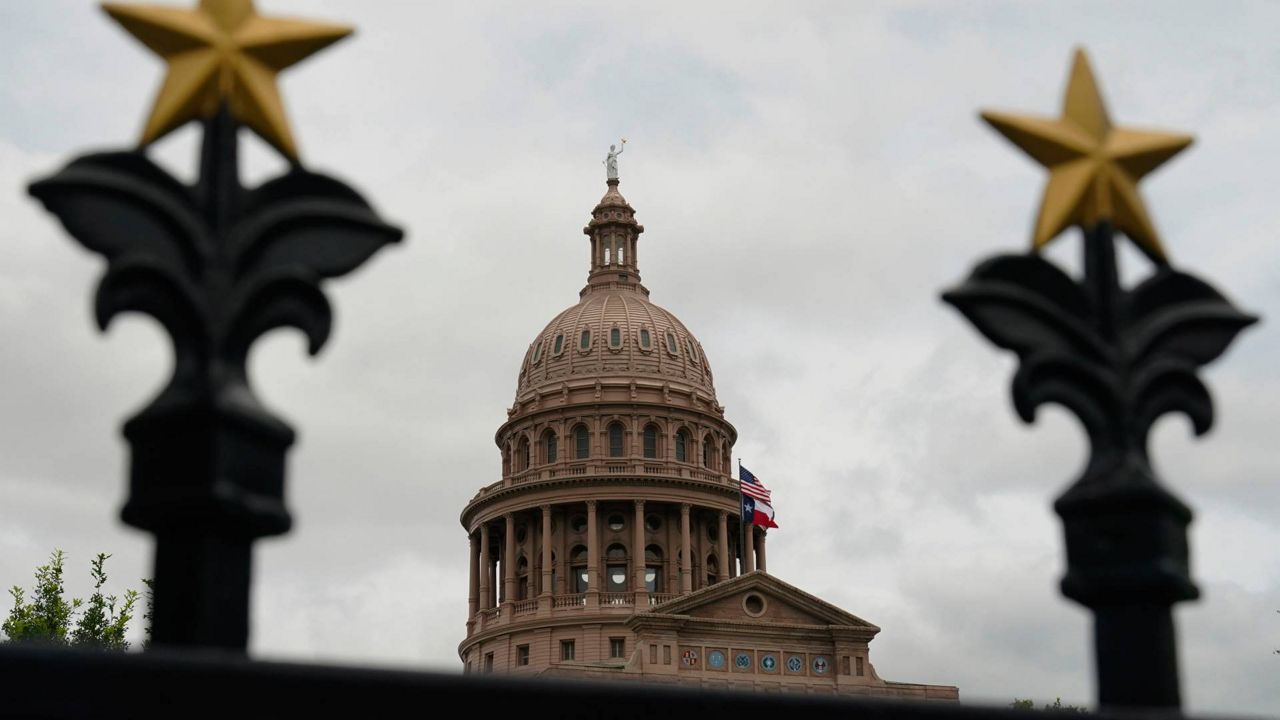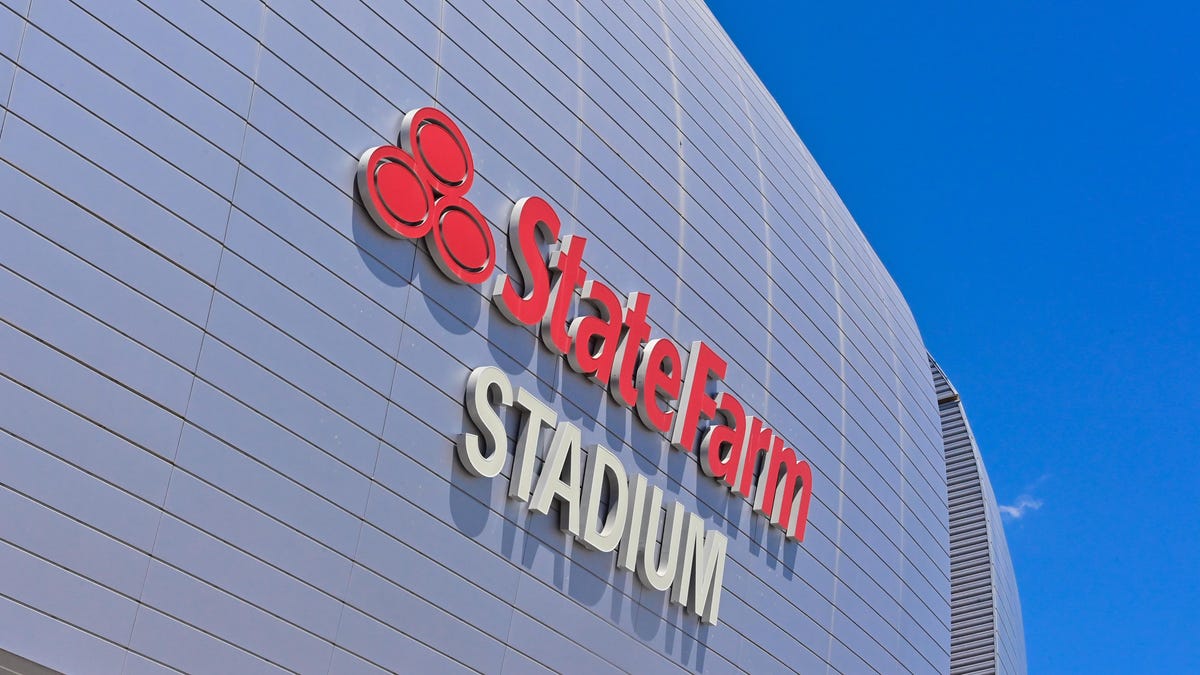World
Hunter Biden: The US president’s scandal-plagued son
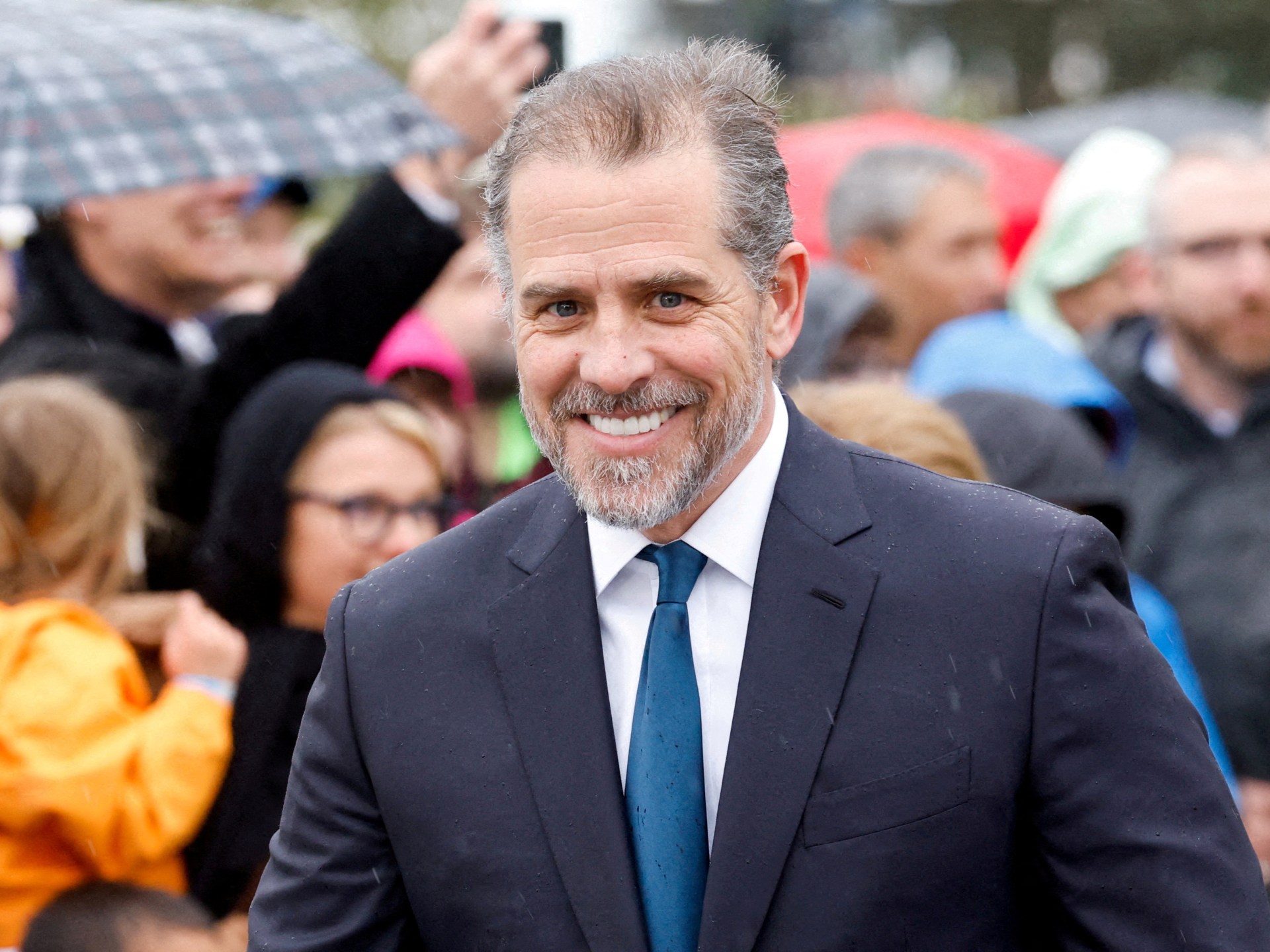
Washington, DC – In a White House eager to distance itself from allegations of nepotism, corruption and grifting, Hunter Biden is the problem that simply won’t go away.
US President Joe Biden’s 53-year-old middle child has been a persistent source of the wrong kind of attention for the first family, with questions swirling over whether he used his father’s office for personal gain.
The latest chapter of the Hunter Biden saga came on June 22, when a WhatsApp message was released by a congressional committee investigating the presidential family.
The message, allegedly from Hunter Biden to a Chinese business associate, showed him berating the associate in July 2017, when Joe Biden was a private citizen and former vice president.
“I am sitting here with my father and we would like to understand why the commitment made has not been fulfilled,” Hunter Biden allegedly wrote.
As the message continued, Hunter appeared to threaten the business associate.
If the Chinese end of the deal was not fulfilled, he wrote, “I will make certain that between the man sitting next to me and every person he knows and my ability to forever hold a grudge that you will regret not following my direction.”
The message seemed to counter claims from White House officials and President Biden himself that he had no involvement in his son’s business activities.
When reporters asked on Wednesday whether he was sitting in the room when Hunter sent his message, President Biden replied, “No, I wasn’t.”
When asked again by Al Jazeera, White House Counsel spokesperson Ian Sams denied Biden had any involvement. “The president was not in business with his son,” said Sams.
But it has become increasingly difficult for the White House to minimise the glut of stories that have emerged from Hunter Biden’s business dealings.
That was apparent at a press briefing on June 23, the day after the WhatsApp message was released. Both White House Press Secretary Karine Jean-Pierre and National Security Council spokesperson John Kirby faced a frustrated press corps, eager to find out more about the Hunter Biden text.
When Newsmax reporter James Rosen read aloud the message and asked whether it undermined claims that the president never discussed his son’s overseas business dealings, Kirby tried to shut down the conversation.
“I am not gonna address this issue from this podium,” Kirby said. He then promptly left the news briefing.
“It’s not an unreasonable question to ask,” Peter Baker of the New York Times later said, as he pressed Jean-Pierre in a tense exchange over the WhatsApp text and Rosen’s question.
“Hunter Biden has been a problem for a very, very long time,” says Eric Ham, a political analyst and co-author of the book The GOP Civil War.
The president is very sensitive about criticism of his son, Ham argued — “which is why the people around Joe Biden are hesitant to really say anything”.
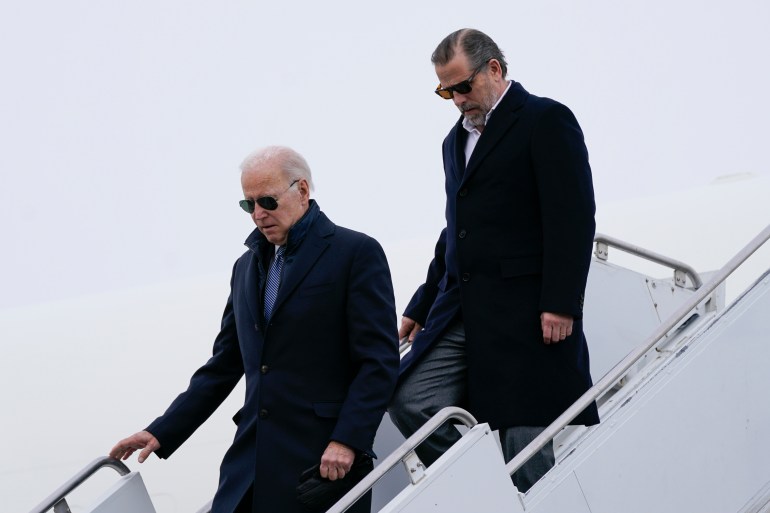
The White House also finds itself under pressure from the investigation unfolding in the House of Representatives.
After reclaiming control of the House in the 2022 midterm elections, Republicans opened a probe into the Biden family and its business dealings, as part of the chamber’s Oversight and Accountability Committee.
Much of that scrutiny has gone towards Hunter and the president’s 74-year-old brother James — and their ties to countries like Ukraine and China.
In 2009, as Joe Biden was beginning his term as vice president under President Barack Obama, Hunter Biden co-founded Rosemont Seneca Partners, a Washington, DC-based investment fund with business in China.
Between February 2014 and August 2019, the committee found 93 wires “totaling $2,461,962.60 to and from businesses and associates linked to the Biden family and a China-based investment fund controlled by the Bank of China”.
Using testimony from whistleblowers and former government officials, Republican lawmakers have accused the Biden administration of obstructing attempts to find out more. They also argue Hunter’s business dealings have a direct effect on Biden’s policies towards China, a charge the White House has denied.
“If President Biden is compromised by deals with foreign adversaries and they are impacting his decision making, this is a threat to national security,” said Republican James Comer, chair of the House Oversight and Accountability Committee.
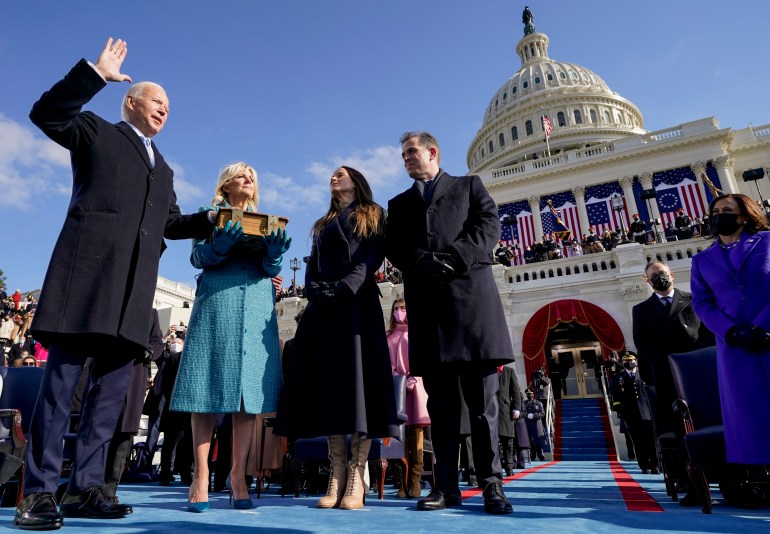
Hunter Biden has also faced allegations of corruption based on his business affairs in Ukraine.
Starting in 2014, Hunter served for five years on the board of Burisma Holdings Limited, a large Ukrainian natural gas company. Critics have questioned how he got on the board with zero experience in the energy industry.
But his term coincided with his father’s investigation of corruption in Ukraine while serving as vice president.
In a 2019 interview with ABC News, Hunter Biden denied his father played any role in helping him get the job. “It does not serve either one of us,” Hunter said.
Earlier this month, the president himself shrugged off the suggestion he was entangled in Ukrainian business dealings as “dumb”.
Two Republican-led Senate committees concluded in a 2020 report that “much more work” needed to be done to fully analyse Hunter’s Burisma ties — but they could not find evidence of criminal wrongdoing nor direct involvement by Joe Biden.
“Hunter Biden has made some questionable choices,” said Elisabeth Anker, associate professor of American studies and political science at George Washington University.
“But he’s not part of his father’s administration or campaign, so these issues really do seem to be to the side of any evaluation of President Biden.” She argues that much of the criticism directed at the Biden family has been “purely political”.
The congressional inquiries come on top of Hunter Biden’s personal problems, many of which have become front-page news.
In a 2021 memoir, Hunter admitted to crack cocaine use and alcoholism, although he said he has received treatment and recovered from his addictions. On Thursday, he settled a long-running child support case with an Arkansas woman who gave birth to his daughter.
And in 2020, a laptop abandoned in a Delaware computer repair shop was shown to have racy photos of Hunter Biden as well as personal information. It has since been the subject of an FBI probe and an online campaign to disparage him.
Another major twist in his ongoing personal drama came on June 20, when he reached an agreement with federal prosecutors on tax and gun charges.
The US Attorney’s Office for the District of Delaware had accused Hunter of failing to file his taxes correctly in 2017 and 2018. Despite owing more than $100,000 in federal income tax each year, “he did not pay the income tax due for either year”, prosecutors said.
They further alleged that he bought a firearm in 2018 while being “addicted to a controlled substance”.
As part of the June 20 agreement, Hunter Biden pleaded guilty to misdemeanour tax charges and avoided prosecution for his gun possession. A federal judge has yet to sign off on the deal, and it is unclear whether Hunter Biden will face any jail time.
Nevertheless, Republican leaders on Capitol Hill, like Speaker Kevin McCarthy, called the agreement a “sweetheart deal” that unfairly benefits Hunter Biden.
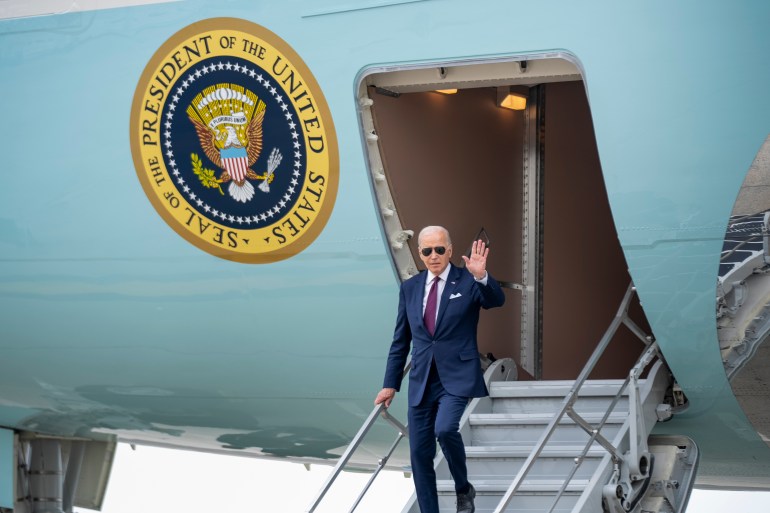
The question for political analysts now becomes: Will any of it matter to voters?
As President Biden heads into another election cycle, he faces an opponent whose own legal and personal problems have dominated headlines.
Former President Donald Trump, a candidate in the 2024 race, has been charged with 37 federal counts related to his handling of classified documents in Florida, not to mention 34 felony counts at the state level in New York.
The Republican frontrunner has also dealt with his own allegations of nepotism. Critics point to the fact that members of Trump’s own family — his son-in-law Jared Kushner, in particular — served as advisers in the Oval Office and did business with foreign governments while part of his administration.
And Trump’s foreign business dealings have likewise sparked controversy. In 2021, a congressional committee released financial documents showing one of Trump’s hotels — located one block from the White House — made more than $3.7m from foreign governments while the Republican was in office.
Still, Trump has tried to weaponise Hunter Biden’s scandals against his father — his main rival in the upcoming presidential race.
But Anker, the political science professor, said that focusing on Hunter Biden likely won’t sway many voters, “given the incredible amount of graft, corruption and questionable financial choices that we’ve seen in presidential administrations over the last six years” — referencing Trump.
Ham, the political analyst, agreed: “I think, if we were not in such a polarised environment, this would pretty much be a non-story.”

World
Monday’s Vikings-Rams NFL Playoff Game Moved to Arizona Due to L.A. Wildfires

ad
World
Details of Venezuelan opposition leader's possible arrest remain unclear amid Maduro inauguration resistance
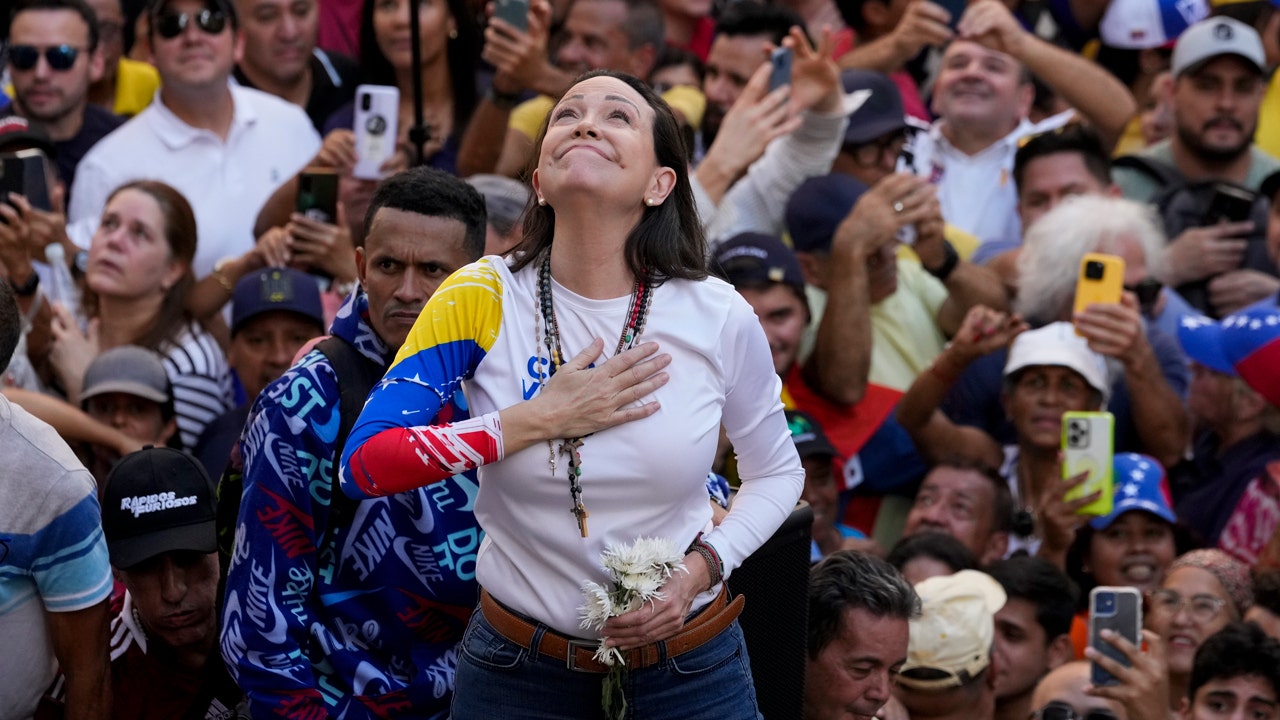
Aides to Venezuela opposition leader Maria Corina Machado said she was detained Thursday, followed moments later by official denials, in a confusing episode that capped a day of protests seeking to block President Nicolás Maduro from clinging to power.
It’s not clear exactly what transpired after Machado bid farewell to hundreds of supporters, hopped on a motorcycle and raced with her security convoy through the empty streets of eastern Caracas to an undisclosed location.
At 3:21 p.m. local time, Machado’s press team said in a social media post that security forces “violently intercepted” her convoy. Her aides later confirmed to The Associated Press that the opposition hardliner had been detained, and international condemnation immediately poured from leaders in Latin America and beyond demanding her release.
But about an hour later, a 20-second video of Machado was posted online by a Maduro supporter in which the opposition leader said she was followed after leaving the rally and that she had dropped her purse. “I’m good, I’m safe,” Machado said in a raspy voice, adding “Venezuela will be free.”
THOUSANDS OF VENEZUELAN OPPOSITION SUPPORTERS TAKE TO THE STREETS AHEAD OF MADURO’S THIRD INAUGURATION
Her aides later said in a social media post that the proof-of-of-life video message had been coerced, and that after recording it she was freed. They said she would provide details of her “kidnapping” later.
Meanwhile, Maduro supporters denied that she was detained and gloated that government opponents were trying to spread fake news to generate an international crisis. “Nobody should be surprised,” Communications Minister Freddy Nanez said. “Especially since it’s coming from the fascists, who were the architects of the dirty trick.”
Earlier Thursday, Machado addressed hundreds of supporters who heeded her call to take to the streets a day before the ruling party-controlled National Assembly was scheduled to swear in Maduro to a third six-year term despite credible evidence that he lost the presidential election.
“They wanted us to fight each other, but Venezuela is united, we are not afraid,” Machado shouted from atop a truck in the capital minutes before she was reported detained.
Machado, 57, is a hardliner former lawmaker who stayed and fought against Maduro even after many of her allies in the opposition leadership fled, joining an exodus of some 7 million Venezuelans who’ve abandoned their homeland in recent years.
Loyalists who control the country’s judiciary banned her from running against Maduro last year. In a deft move, she backed an unknown outsider — retired diplomat Edmundo González — who crushed Maduro by a more than two-to-one margin, according to voting machine records collected by the opposition and validated by international observers.
Venezuelan opposition leader Maria Corina Machado addresses supporters at a protest against President Nicolas Maduro in Caracas, Venezuela, Thursday, Jan. 9, 2025, the day before his inauguration for a third term. (AP Photo/Ariana Cubillos)
González, invoking the title of president-elect recognized by the U.S. and other countries, was among those who demanded Machado’s release in the immediate aftermath of what was believed to be her shock arrest.
“To the security forces, I warn you: don’t play with fire,” he said in a social media post from the Dominican Republic, where he met with President Luis Abinader and a delegation of former presidents from across Latin America.
There was a relatively small turnout for Thursday’s protests as riot police were deployed in force. Venezuelans who’ve witnessed Maduro’s security forces round up scores of opponents and regular bystanders since the July election were reluctant to mobilize in the same numbers as they have in the past.
“Of course, there’s fewer people,” said empanada vendor Miguel Contrera as National Guard soldiers carrying riot shields buzzed by on motorcycles. “There’s fear.”
Those demonstrators that did show up blocked a main avenue in one opposition stronghold. Many were senior citizens and dressed in red, yellow and blue, answering Machado’s call to wear the colors of the Venezuelan flag. All repudiated Maduro and said they would recognize González as Venezuela’s legitimate president.
The deployment of security forces as well as pro-government armed groups known as “colectivos” to intimidate opponents betrays a deep insecurity on the part of Maduro, said Javier Corrales, a Latin America expert at Amherst College.
Since the elections, the government has arrested more than 2,000 people — including as many as 10 Americans and other foreigners — who it claims have been plotting to oust Maduro and sow chaos in the oil rich South American nation. This week alone, masked gunmen arrested a former presidential candidate, a prominent free speech activist and even González’s son-in-law as he was taking his young children to school.
“It’s an impressive show of force but it’s also a sign of weakness,” said Corrales, who co-authored this month an article, “How Maduro Stole Venezuela’s Vote,” in the Journal of Democracy.
“Maduro is safe in office,” said Corrales, “but he and his allies recognize they are moving forward with a big lie and have no other way to justify what they are doing except by relying on the military.”
Venezuela’s National Electoral Council, also stacked with government loyalists, declared Maduro the winner of the election. But unlike in previous contests, authorities did not provide any access to voting records or precinct-level results.
The opposition, however, collected tally sheets from 85% of electronic voting machines and posted them online. They showed that its candidate, González, had thrashed Maduro by a more than two-to-one margin. Experts from the United Nations and the Atlanta-based Carter Center, both invited by Maduro’s government to observe the election, have said the tally sheets published by the opposition are legitimate.
The U.S. and other governments have also recognized González as Venezuela’s president-elect. Even many of Maduro’s former leftist allies in Latin America plan to skip Friday’s swearing-in ceremony.
President Joe Biden, meeting González at the White House this week, praised the previously unknown retired diplomat for having “inspired millions.”
“The people of Venezuela deserve a peaceful transfer of power to the true winner of their presidential election,” Biden said following the meeting.
World
‘Much more persecution’: Venezuela braces for Nicolas Maduro’s inauguration

Bogota, Colombia – Jesus Medina Ezaine had already spent 16 months in a Venezuelan military prison, accused of crimes he said were related to his work as a photojournalist.
But another prison stint seemed imminent, particularly after the contested re-election of Venezuelan President Nicolas Maduro.
With Maduro set to be sworn in for a third term, Medina, 43, made a difficult decision: to flee his home in Venezuela for the relative safety of Bogota, the capital of neighbouring Colombia.
“Before they could put me back in prison, I decided to escape,” said Medina.
Maduro’s government has long faced criticism for the alleged repression of political rivals. But Friday’s inauguration ceremony is set to bring the recent electoral crisis to a head, with observers warning that the violence may escalate as Maduro strives to hold onto power.
“The regime is going to do everything they can to ensure that Maduro can be re-inaugurated and that he can continue with his administration,” said Juan Pappier, deputy director of Human Rights Watch’s Americas division.
“If they see that possibility challenged in any way, for example through [opposition-led] demonstrations, they are going to repress them brutally.”
A climate of fear
Medina remembers his final months in Venezuela as being drenched in fear.
In the lead-up to the controversial election, he had joined the campaign of opposition leader Maria Corina Machado as a photographer, documenting her efforts to galvanise support for presidential candidate Edmundo Gonzalez.
But that work once again made him a target.
Medina was not unknown to the Maduro government: In 2018, he was arrested on charges of money laundering, criminal association and inciting hate, all of which he denies.
Instead, he maintains his arrest was in retaliation for his reporting on human rights abuses. He was held without trial in the Ramo Verde military prison until January 2020.
“The Venezuelan regime does not tolerate any comments or information against them,” he said.
“The media is scared,” Medina added. “Freedom of expression in Venezuela has been completely lost because journalists inside Venezuela are doing what they can to avoid imprisonment.”
But the presidential election on July 28, 2024, brought political repression worse than any Medina had witnessed before.
Hours after polls closed, the National Electoral Council named Maduro the winner, without offering its usual breakdown of voting tallies.
Meanwhile, the opposition published receipts of the votes that instead suggested Gonzalez had won the election with nearly 70 percent of the vote. As protests erupted over the alleged electoral fraud, a government crackdown ensued.
As state forces swept the streets for protesters, seizing dissidents from their homes, Medina said he was tipped off that he would be jailed — again.
He quickly went into hiding. Medina spent two months holed up in different locations in the capital Caracas, trying to avoid arrest. He said the country’s intelligence forces had already knocked at the door of his home in the city.
Feeling cornered, Medina decided to flee on September 15 to Bogota, where he has stayed ever since.

A wave of repression
As many as 2,500 people were ultimately detained in the post-election protests, according to government statistics.
Another 25 people were killed, in what independent investigators for the United Nations called “unprecedented levels of violence”.
A UN fact-finding mission announced earlier this month that at least 56 political opposition activists, 10 journalists and one human rights defender were among the arrested between August and December.
On Tuesday, the Inter-American Commission on Human Rights also published a report alleging systematic state repression intended “to prevent the political participation of the opposition” and “sow terror among citizens”.
But in the lead-up to Friday’s inauguration, more than 1,500 prisoners detained in the post-election sweep have been released, in what critics say could be an attempt to reduce scrutiny on the government’s human rights record.
Alfredo Romero, the director of Foro Penal, a Venezuelan human rights watchdog, explained that “having a number of innocent youths with their relatives, especially their mothers, at the door of the prisons” holding vigils was reflecting poorly on the Maduro administration.
Rights groups have also questioned the accuracy of the government’s numbers.
Romero said that at least 1,749 prisoners remained in custody as of the first week of January, and more alleged dissidents had since been detained.
“People may be released from prison, but it doesn’t mean that new ones won’t be jailed,” he said.

Inauguration backlash
Despite widespread fear over repression, demonstrations are expected on the day of Maduro’s third inauguration.
Gonzalez, the opposition’s presidential candidate, has also pledged to return to Venezuela from his exile abroad and be sworn in on Friday. It is unclear how or if he will follow through on that pledge.
In a video message posted to social media on Sunday, Machado, who has remained in hiding in Venezuela for months, called on Venezuelans to march in support of a transition of power this week.
“Maduro is not going to leave on his own, we must make him leave with the strength of a population that never gives up,” Machado said. “It is time to stand firm and make them understand that this is as far as they go. That this is over.”
In turn, the Maduro government has ramped up security and deployed more than 1,200 military personnel to cities across the country to “guarantee peace” on inauguration day.
The government has also detained more than 12 human rights defenders, political activists, and relatives of opposition figures in recent days, according to Amnesty International, a human rights organisation.
The detainments allegedly include Gonzalez’s son-in-law, Rafael Tudares: The presidential candidate said Tudares was abducted by masked men in Caracas on Tuesday.
And on Thursday, Machado herself was detained as she left an anti-Maduro protest, according to opposition officials who said her transportation was fired upon. She was swiftly released.

An uncertain future
The recent arrests have prompted a new swell of international condemnation.
The United States Embassy in Venezuela has called the detention of Gonzalez’s son-in-law an act of “intimidation” against the opposition. Colombian President Gustavo Petro said that the arrests prevented him from attending Maduro’s inauguration on Friday.
Still, Maduro’s control of state institutions has allowed security forces to act with impunity, according to the recent report from the Inter-American Commission on Human Rights.
Medina himself believes repression in Venezuela may escalate if Maduro remains in power for a third term.
“If we do not achieve freedom, there will be much more persecution,” said Medina. “They will try to put an end to everything that they consider the opposition, including political leaders and the media.”
For now, he added that he hopes to continue his work exposing human rights abuses from abroad.
“What I have decided is that, no matter what, I’ll fight for my country.”
-

 Business1 week ago
Business1 week agoThese are the top 7 issues facing the struggling restaurant industry in 2025
-

 Culture1 week ago
Culture1 week agoThe 25 worst losses in college football history, including Baylor’s 2024 entry at Colorado
-

 Sports1 week ago
Sports1 week agoThe top out-of-contract players available as free transfers: Kimmich, De Bruyne, Van Dijk…
-

 Politics1 week ago
Politics1 week agoNew Orleans attacker had 'remote detonator' for explosives in French Quarter, Biden says
-

 Politics1 week ago
Politics1 week agoCarter's judicial picks reshaped the federal bench across the country
-

 Politics6 days ago
Politics6 days agoWho Are the Recipients of the Presidential Medal of Freedom?
-

 Health5 days ago
Health5 days agoOzempic ‘microdosing’ is the new weight-loss trend: Should you try it?
-

 World1 week ago
World1 week agoIvory Coast says French troops to leave country after decades




